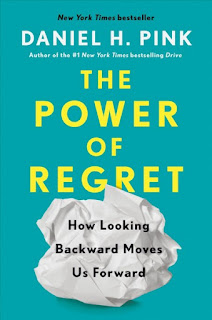This fall, I am working on a nonfiction
writing project that's been brewing for several years, and thinking
through the structure of a book that is part researched history, part family
lore, and part memoir. Regret factors prominently in the story, and so does
considering and reconsidering the past. I'm doing lots of reading on the
subject as I consider how to tell this story.
Daniel
H. Pink's book, The Power of Regret: How Looking Backward Moves Us
Forward was a powerful and interesting read, breaking down the
different types of regrets into four core categories: foundation regrets,
boldness regrets, moral regrets, and connection regrets. If you can identify
and analyze your regret, or in some cases, anticipate that you will regret
something, you can adjust behavior accordingly. You can change the way you
think about your regrets.
I'm particularly interested in
how this relates to the stories we tell about our lives. Memory, stories, and
the imagination are among my core writing interests. As Pink writes:
"Open the
hood of regret, and you'll see that the engine powering it is storytelling. Our
very ability to experience regret depends on our imagination's capacity to
travel backward in time, rewrite events, and fashion a happier ending than in
the original draft. Our capacity to respond to regret, to mobilize it for good,
depends on our narrative skills—disclosing the tale, analyzing its components,
and crafting and recrafting the next chapter" (208).
Exactly this. On to the next chapter.

Comments
Post a Comment